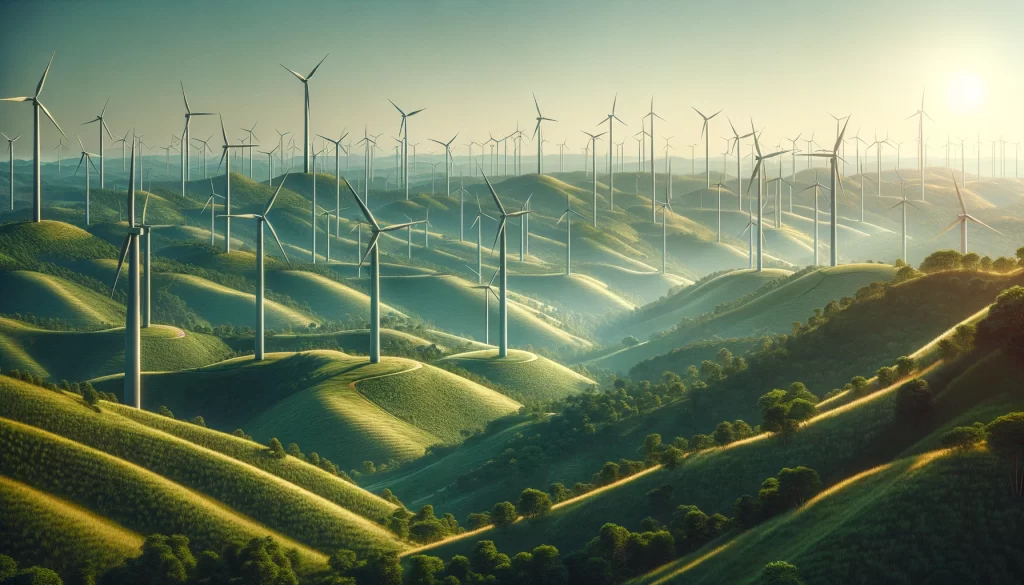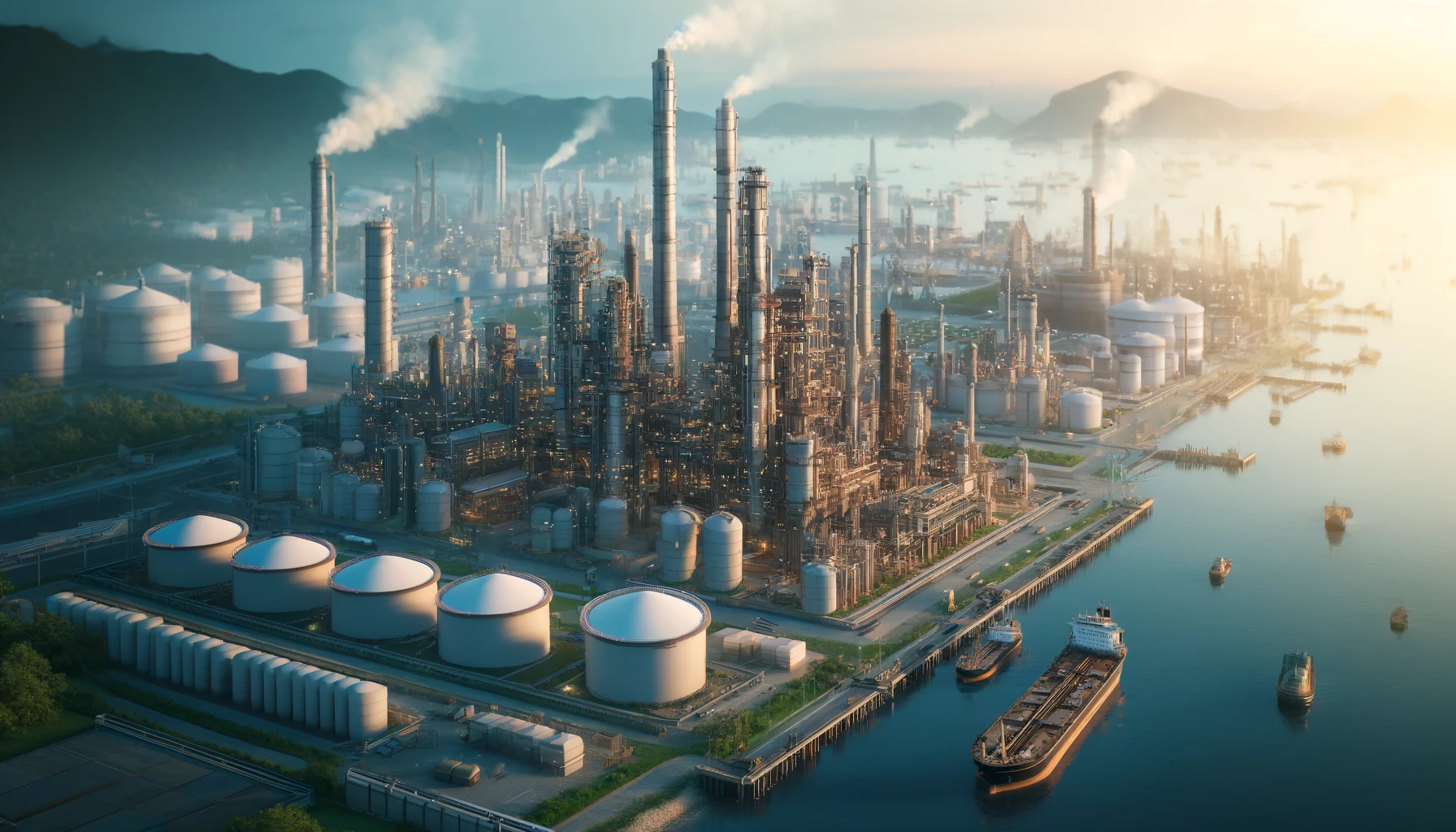Early Cooperation and Profits
Early in his presidency, President Joe Biden managed to maintain a fragile truce with the oil and gas industry. Although he imposed restrictions on drilling as part of his ambitious climate agenda, he also approved an $8 billion oil project in Alaska. During this period, the United States emerged as the world’s leading exporter of natural gas and reached record crude oil production levels. As a result, the oil and gas industry enjoyed unprecedented profits.
The January Permit Pause
However, in January, President Biden decided to pause new permits for liquefied natural gas (LNG) export facilities. This decision marked a significant shift and provoked a strong reaction from the oil and gas industry. According to Thomas J. Pyle, president of the American Energy Alliance, “To the industry, Mr. Biden’s pause on new gas export permits was a wake-up call. He could be potentially icing billions of dollars in long-term L.N.G. contracts. That’s real. That’s tangible.”
Reaction and Fundraising for Trump
The pause has led to a surge of industry support and donations for former President Donald Trump, who is running to unseat Biden. This newfound support will be evident at a fundraising lunch set for Wednesday in Houston. Organized by three oil executives, including Kelcy Lee Warren of Energy Transfer, Harold G. Hamm of Continental Resources, and Vicki Hollub of Occidental Petroleum, the event aims to benefit Trump’s campaign. Trump is expected to attend the event, which will support MAGA Inc., a pro-Trump super PAC.
Warren’s company, Energy Transfer, has built a national network of pipelines, including those serving LNG export facilities. Warren’s company previously tangled with the Biden administration when it refused to extend a permit for a proposed export terminal facing delays. The indefinite pause on new permits complicates Energy Transfer’s plans for international expansion.
Hamm, known for pioneering the shale oil boom that turned the U.S. into the world’s largest crude exporter, also voiced concerns. Oil executives like Hamm believe the pause sends a message to allies that they cannot rely on U.S. exports, prompting them to seek alternative suppliers. Shortly after Biden’s pause, Qatar, the world’s second-largest gas exporter, announced plans to increase production.
Political Contributions and Campaigns
Since the start of Trump’s 2024 campaign, his committee has raised $7.3 million from the oil and gas industry, more than three times what it raised by this period in 2020. By contrast, Biden’s campaign has received about $186,000 from the industry. Biden has signed a pledge not to accept contributions over $200 from any oil, gas, or coal industry executive.
In defending the pause on new permits, Biden stated that the Energy Department needs to study the impacts of gas exports on national security, the economy, and climate change. The move came after a six-month campaign by climate activists to block the Calcasieu Pass 2 project in Louisiana, which would have been the largest gas export terminal in the U.S. The pause also affects five other projects intending to export gas to countries without free-trade agreements with the U.S. Despite the pause, the U.S. is on track to nearly double its export capacity by 2027 due to projects already permitted and under construction.
Environmental and Industry Reactions
Climate activists, a crucial constituency for Biden, especially among young voters, celebrated the pause. Tiernan Sittenfeld of the League of Conservation Voters said, “This L.N.G. pause is a huge deal for climate and environmental justice.” Shortly after the announcement, the League launched a $2 million television campaign supporting Biden.

On the other hand, oil industry leaders criticized the move. D. Kirk Edwards, a West Texas oil and gas executive, described the L.N.G. pause as “one more in a series of policy hits that have come across from the administration directly aimed at the energy industry in this country.” Mary Landrieu, a former Democratic senator from Louisiana and current gas industry lobbyist, called the pause a “setback in the relationship” between gas producers and the administration. She highlighted how just months earlier, the administration had praised the industry for supplying gas to Europe to reduce dependence on Russian fuel.
Trump’s Strategy and Industry Support
Trump has actively courted the oil and gas industry’s support, emphasizing his vision of American energy dominance. During a dinner at Mar-a-Lago about a month ago, he urged energy executives to contribute $1 billion to his campaign, suggesting the savings from reduced taxes and legal expenses after repealing Biden’s climate regulations would justify the hefty contributions. Trump’s campaign spokeswoman, Karoline Leavitt, stated that Trump “is supported by people who share his vision of American energy dominance to protect our national security and bring down the cost of living for all Americans.”
In response, Biden campaign spokesman Ammar Moussa criticized Trump, stating, “Mr. Trump is siding with his greedy Big Oil friends to ship jobs away from the United States and ignore the climate crisis so the next generation suffers.”
Congressional Inquiry
House Democrats have initiated an inquiry into the dinner at Mar-a-Lago. Representative Jamie Raskin of Maryland, the top Democrat on the House Committee on Oversight and Accountability, has written to nine companies that attended the dinner, requesting information about any “quid pro quo financial agreements related to U.S. energy policy” discussed at the event. Companies contacted include Chevron, Exxon Mobil, Continental Resources, and others.
This article is based on the following article:
https://www.nytimes.com/2024/05/21/climate/trump-campaign-oil-gas.html

Background Information
President Joe Biden’s Climate Agenda
President Joe Biden’s administration has placed a significant emphasis on addressing climate change. Early in his term, Biden rejoined the Paris Agreement, an international treaty aimed at limiting global warming. His climate agenda includes ambitious goals to reduce greenhouse gas emissions, promote renewable energy sources, and decrease the nation’s reliance on fossil fuels. This agenda involves various measures such as restricting drilling on federal lands, incentivizing the development of wind and solar energy, and setting targets for electric vehicle adoption.
The Oil and Gas Industry
The oil and gas industry is a critical sector of the global economy, responsible for producing energy that powers homes, businesses, and transportation systems. The industry includes exploration, extraction, refining, transporting, and marketing oil and natural gas. Key players in this industry are large multinational corporations such as ExxonMobil, Chevron, and BP, as well as smaller independent companies. The industry is also influential in politics due to its economic significance and substantial campaign contributions.
LNG Export Terminals
Liquefied Natural Gas (LNG) export terminals are facilities where natural gas is cooled to a liquid state for transportation and storage. LNG is easier to transport over long distances compared to gas in its gaseous state, making it a critical component of international energy trade. The U.S. has become a leading exporter of LNG, with terminals primarily located along the Gulf Coast. These facilities enable the U.S. to supply natural gas to countries around the world, particularly in Europe and Asia.
Climate Activists and Environmental Justice
Climate activists are individuals and groups advocating for actions to combat climate change. They push for policies that reduce greenhouse gas emissions, promote renewable energy, and protect natural resources. Environmental justice is a movement focused on ensuring that environmental benefits and burdens are distributed fairly, and that marginalized communities are not disproportionately affected by pollution and environmental hazards. Activists often oppose fossil fuel projects due to their environmental and health impacts.
The Shale Oil Boom
The shale oil boom refers to the rapid increase in oil production in the U.S. due to advances in hydraulic fracturing (fracking) and horizontal drilling technologies. These methods have unlocked vast reserves of oil and natural gas from shale formations, particularly in regions like Texas and North Dakota. This boom transformed the U.S. into the world’s largest producer of crude oil, significantly impacting global energy markets and reducing the country’s dependence on foreign oil.
Political Campaign Contributions
In the U.S., political campaigns are often funded by contributions from individuals, corporations, and political action committees (PACs). Campaign finance laws regulate these contributions to ensure transparency and limit undue influence. However, large contributions from industries such as oil and gas can still wield significant influence over political candidates and their policies. Super PACs can raise and spend unlimited amounts of money to support or oppose candidates, provided they do not coordinate directly with the candidates’ campaigns.
Paris Agreement and International Energy Policy
The Paris Agreement is a global treaty adopted in 2015 to address climate change by limiting global temperature rise to below 2 degrees Celsius above pre-industrial levels. Signatories, including the U.S., commit to reducing their carbon emissions and transitioning to renewable energy sources. The International Energy Agency (IEA) plays a key role in advising countries on energy policies that balance economic growth, energy security, and environmental sustainability.
U.S. Energy Exports and Geopolitical Implications
The U.S. energy exports, particularly LNG, have geopolitical implications. By supplying natural gas to countries in Europe and Asia, the U.S. can influence global energy markets and reduce the reliance of these regions on other major suppliers like Russia and Qatar. This energy dominance strengthens the U.S. position in international relations and provides economic benefits through trade.
Biden Administration’s Energy Policies
The Biden administration’s energy policies aim to balance economic growth, energy independence, and environmental protection. While promoting renewable energy, the administration also recognizes the role of natural gas as a transition fuel. However, policies like the pause on new LNG export permits reflect a cautious approach to expanding fossil fuel infrastructure due to environmental and climate concerns.
Former President Donald Trump’s Energy Policies
Former President Donald Trump’s administration prioritized energy independence and economic growth through deregulation and expanded fossil fuel production. Trump rolled back numerous environmental regulations, opened more federal lands for drilling, and supported the development of pipelines and export facilities. His campaign for the 2024 election continues to emphasize reducing regulatory burdens on the energy industry and promoting U.S. energy exports.
Key Figures in the Oil and Gas Industry
- Kelcy Lee Warren: Executive Chairman of Energy Transfer, a company that operates pipelines and LNG export facilities. Warren has been a significant supporter of Trump and has clashed with the Biden administration over regulatory issues.
- Harold G. Hamm: Founder and Executive Chairman of Continental Resources, a major player in the shale oil industry. Hamm is known for his role in the U.S. shale boom and his support for Trump’s energy policies.
- Vicki Hollub: CEO of Occidental Petroleum, one of the largest oil producers in the U.S. Hollub’s involvement in the Houston fundraiser highlights the industry’s alignment with Trump’s energy agenda.

Debate/Essay Questions
- Can the U.S. achieve its climate goals while maintaining a robust oil and gas industry?
- What role should the U.S. play in the global energy market?
- Is it ethical for political candidates to accept large donations from industries they regulate, such as the oil and gas sector?
Please subscribe to Insight Fortnight, our biweekly newsletter!
